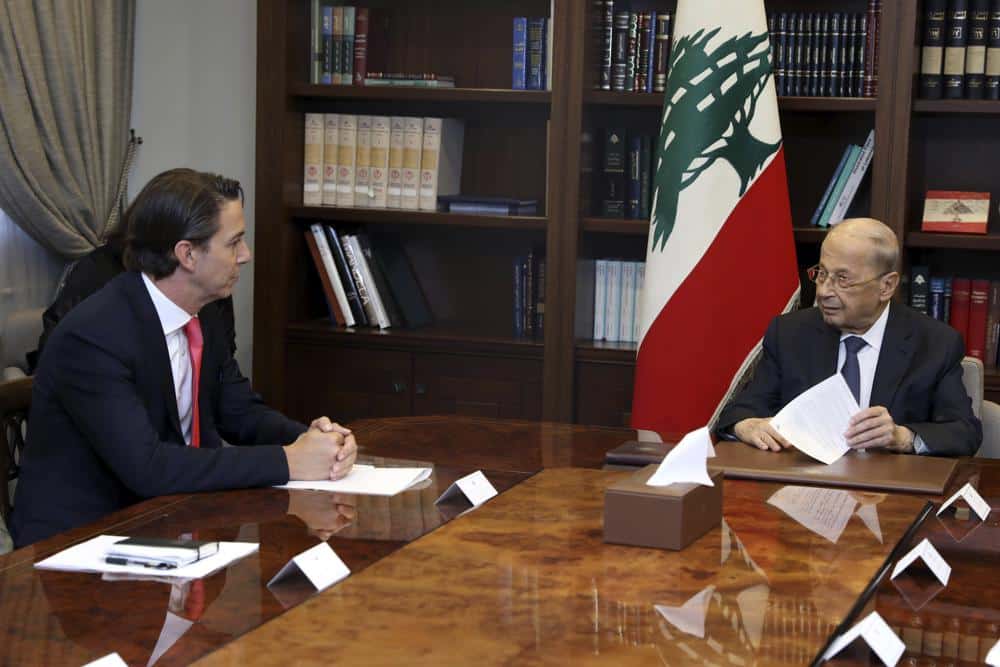Israel’s Prime Minister, Yair Lapid, said on Tuesday that the agreement is beneficial for Israel. Despite Lebanon’s President Michel Aoun saying he hoped to announce the final agreement “as soon as possible,” Israeli Prime Minister Yair Lapid said his country had reached a “historic deal” demarcating the maritime boundary.
Mr Lapid has said that the agreement “will strengthen Israel’s security, inject billions into Israel’s economy, and ensure the stability of our northern border” after his Cabinet was criticised by hardliners for making concessions.
“We have reached a solution that satisfies both parties,” Elias Bou Saab, Lebanon’s lead negotiator, said.
“Lebanon has gotten the full measure of its rights, and all of its comments have been accounted for.”
Bou Saab wished an agreement could be signed before Aoun’s term ends on October 31, although the deal could be delayed unless it is finalised before November 1, when Israel holds elections.
The Lebanese caretaker Energy Minister, Walid Fayyad, announced on Tuesday that the French company TotalEnergies would begin searching for gas in Lebanese waters as soon as an agreement on the border between Lebanon and Israel is reached. A senior delegation from the energy company met with Mr. Fayyad in Beirut yesterday.
Hezbollah has reportedly given its approval to the deal, which has been approved by two Lebanese officials.
Amoss Hochstein, an energy envoy, has been involved in months of shuttle diplomacy in an attempt to resolve the conflict. Earlier in the day, the head of Israel’s National Security Council, Eyal Hulata, said their demands had been met.
“All of our demands have been met; the modifications we requested have been corrected. We safeguarded Israel’s security interests and are moving towards a historic agreement,” he said.
Last week, Israel rejected last-minute changes to the agreement proposed by Lebanon that appeared to jeopardize decades of effort to reach an agreement. The US mediator has been involved in close contact with officials from both countries over the last few days, in an effort to resolve outstanding differences.
It is still unclear whether the agreement will require parliament’s approval when Israel holds elections on November 1.
The agreement would settle a territorial conflict in the eastern corner of the Mediterranean, where Lebanon wants to drill for natural gas, and near the Karish offshore gasfield, where Israel has already found significant quantities of hydrocarbons.
Israel has insisted that the Karish gasfield is entirely within its waters and therefore not subject to negotiation. Lebanon has also previously claimed a portion of the gasfield.
The discovery of gas would be a major boon for Lebanon, which has been mired in a financial crisis since 2019. In the long run, such a discovery could fix Lebanon’s longstanding failure to produce adequate electricity for its population.
Hezbollah, a Iran-supported armed group and political organisation that holds significant influence in Lebanon, has previously threatened to attack Karish if production begins there before a deal is reached.
Israel says production at Karish would begin as soon as possible.
Image Credit: Dalati Nohra via AP



















